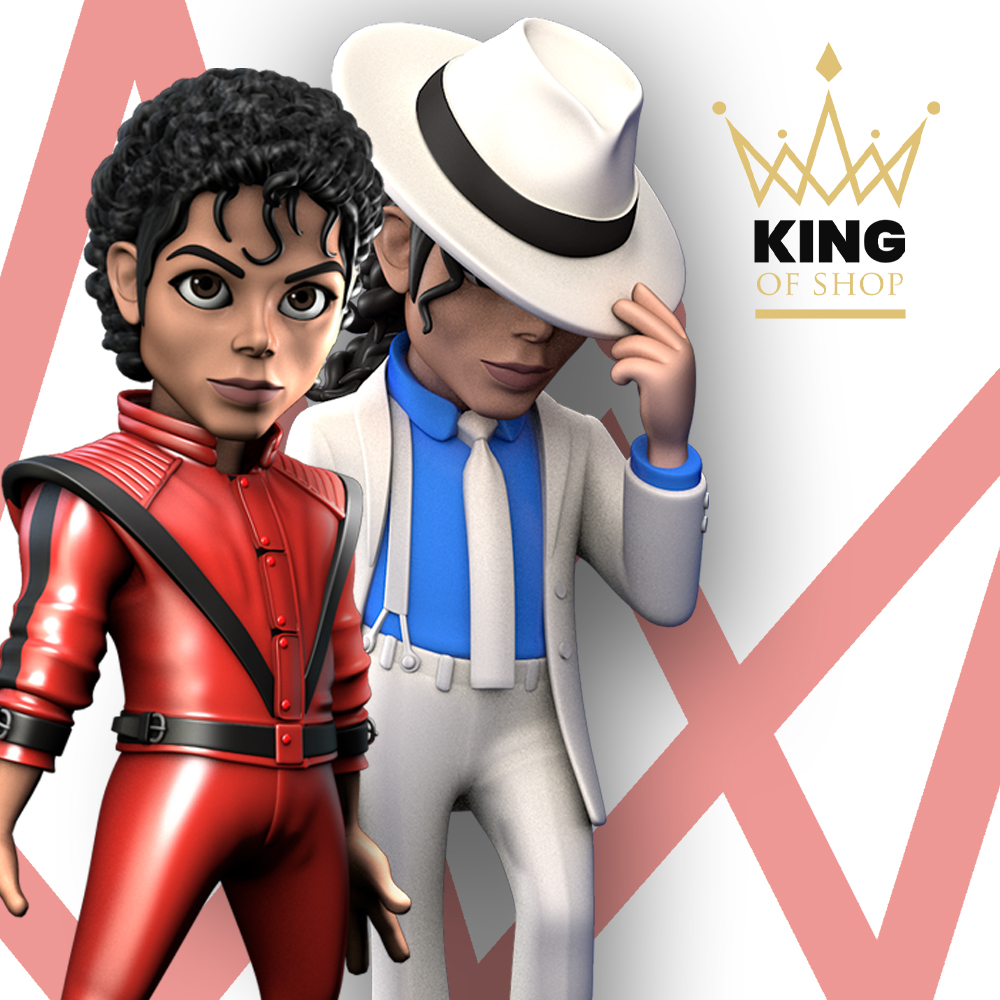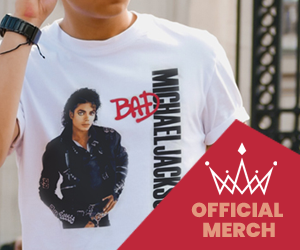
© Richard Young/Rex Features
This week marks the release of Queen Forever, a retrospective collection of the rock band’s biggest hits with a handful of new songs featuring Freddie Mercury’s vocals.
Record producer William Orbit was brought in to work on a special duet between Freddie and Michael Jackson, titled ‘There Must Be More To Life Than This’, which has finally been completed for the new album.
Digital Spy caught up with Orbit to discuss the problems he faced working on the track, if Adam Lambert was ever considered to feature on the project and if he’d work on a future Michael Jackson posthumous album.
Considering Queen‘s immense musical legacy, it must have been daunting working on a project like Queen Forever…
“Well, yeah it was! I’ve known Roger for a long time now – 10 years as a mate – and we had mentioned a couple of things, but nothing came together officially. So when it became a real thing, I did feel that. I just know how much Queen fans are passionate. I’ve seen it. I’ve been around many popstars in the background as people come up to them, but I’ve never been around anybody that it happens to more than Roger Taylor. Everywhere. In funny old far-off places.
“I was very aware of the collective feeling people have for Queen, so of course I was a little bit trepidatious. Then, of course, you get stuck in, and with that aside, this is very technically complicated. It’s almost politically complicated, in as much as we’ve got two deceased musicians at the heart of it – and for me, Michael Jackson is a mystery. I’ve only ever known anything about him as a punter, but we all know there is a special creed with anything to do with him.”
Do you ever read online reaction to your work, and have you done so for the Freddie and Michael duet?
“I never have to date. With Madonna, people say all sorts of stuff and she said herself, ‘Just ignore it, William. Whatever it says, don’t let it get to you.’ So I took her advice and never did. Then you get Britney Spears and you get all sorts of rumblings, and I just thought, ‘Oh well, whatever’.
“But this, I did actually. In fact, I foolishly got on it at one point. I woke up, drank a jug of coffee, and saw a tweet which was really quite insulting. I don’t mind being insulted, but I don’t like it when they insult people that I adore, like Queen. So I got into it and did a little bit of what they call troll feeding – it’s all new to me. It got out of hand and I was quickly told by friends… All of my friends, if I ever tweet, they say, ‘Look William, we get a tight feeling in our solar plexus that you shouldn’t be doing this’. And then I stop. So yes, I did become aware of the polarity and it was a little unsettling. The thing is, it’s not so bad if you stand behind what you do. I listened to it 111,000 times, and only for 110,999 times I still had reservations. So I really stand behind it.”
What were the biggest problems you faced getting this duet to its final form?
“It was ever so rudimentary. It was basically Freddie hitting the piano – studios in those days didn’t have separation – so he’s banging out the piano and then overdubbed some beautiful harmonies. He must’ve spent an awful lot of time. Michael Jackson, I think, came in and did a take and you can hear Freddie on the multi-track calling out ‘The bridge here’, ‘The repeat chorus’ and everything like that. Clearly, Jackson’s involvement was brief and thereby technically a challenge in the audio.
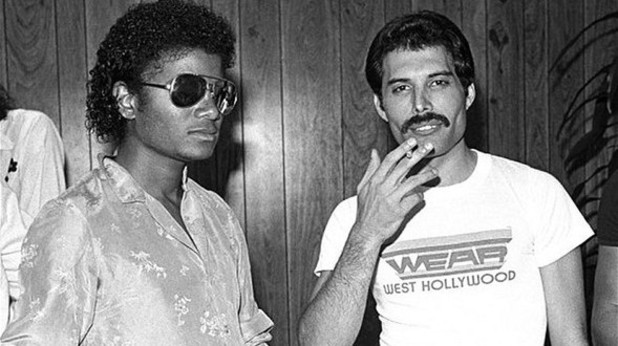
“Then there was the dynamic between the two artists. Do you have them sing line, line, line, line, or do you have them sing verses? It was collective by the way – there was a lot of debate amongst myself, Brian and Roger – but whether we made the right choice over how we presented the singers, there was a lot of debate. We didn’t have as many options as people might think. ‘Why don’t you have that bit there?’ and I don’t like to say it, but maybe we didn’t have it. It was recorded in a throwaway way over 30 years ago. It was quite a jigsaw puzzle. Fortunately, Queen have got their own engineers and they helped me out. The quality of their people right across the board was awesomely amazing.
“Freddie’s piano playing was the DNA of the entire song. I added a lot, but it was always in strict conformity with the melody and harmonies that were there from the get-go. Brian May had never played on this particular song – it just hadn’t happened in their busy lives at the time – so we had to do that. That’s when it first became real. There’s Brian May over there shredding and I’m standing next to him playing air guitar. Previously with some of my stuff – namely Madonna – you look back and think, ‘That was kind of amazing. I wish I’d known it at the time.’ But this time, I’m there thinking, ‘This is amazing right now, this very second’.
“I went through this process… everybody does I suppose. It’s a process that happens to a lot of us in this business; you get overloaded and mine happened at that time. I had to go through a change in management, change this, change that, new equipment, overloaded and a bit pissed off with the whole pop industry. ‘F**k it all’ was my attitude. I disappeared to the desert for a few months, much to Queen’s frustration. I think what called me back was a) this is a damn good thing I should be doing, and b) these are friends of mine. I can’t just be a space case. It took a long time and they were very, very patient with me actually.”
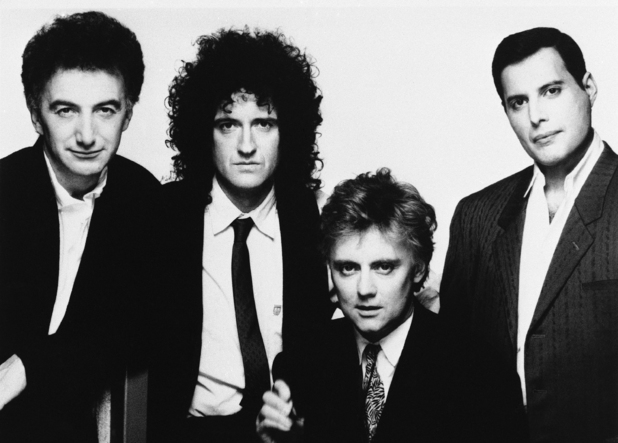
© AP/Press Association Images
Queen
Music during this period was effortlessly epic, whereas that sound seems harder to achieve these days…
“I feel so, and when they try to, it sounds contrived. I’ve really thought about why. My personal theory is that the guys who were the engineers of the day would have been men of possibly 60, and they would have cut their teeth in big bands after the Second World War. They were the guys who would’ve mic’d up John Bonham’s kit and Brian May’s amp and whatnot. They knew how to get a good sound in a room with no multitrack.
“I want to know! I want to know the answer to this because it’s that particular period right across every genre of music in the ’70s. The albums sound amazing. What really, really tortures all of us producers is that we don’t really know how it was done. That gets us. It gets us bad because we want to make our records sound like that too.”
Adam Lambert has been positively received during the Queen live shows, so were there ever any discussions for him to record vocals for a remix of any of the tracks?
“I love Adam and I met him before all of this. We met at an awards show and we were going to do some stuff, but then all this happened. Brian said it all at a meeting. He said: ‘We were surprised this young man came along and was totally right. We’ve had a ball and thank you Adam for allowing us to get out there and keep doing what we love.’ He’s a beautiful guy and his attitude is perfect. Would I bring Adam in on it? Listen, I kind of take my direction from Queen central, so of course. I’d love to get Adam on the mic.
“We had a very nice conversation, the two of us, about vocals. Stuff that I’m interested in, ‘Where do you put your larynx when you do these notes? Where’s your break before your falsetto?’ All this kind of stuff that singers love to talk about and I love to hear. It would be nuts if we didn’t go into the studio and put it to the test, right? We’ve got to. As I say, we were all very cognisant of the Freddie legacy, so we’re not going to hurry into anything.'”
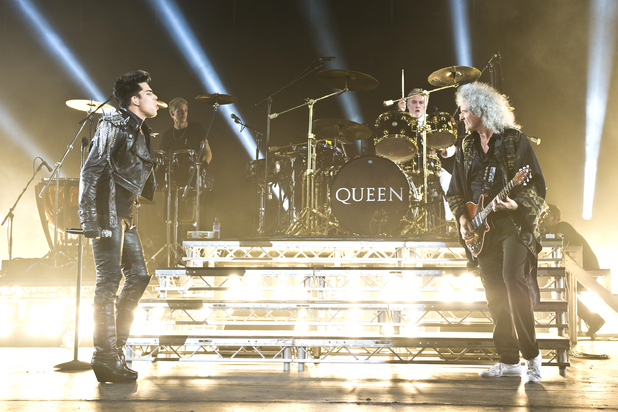
© WENN / Carsten Windhorst
Now you’ve worked with Michael Jackson’s vocals on this project, would you consider contributing to one of his own posthumous records in the future?
“I would. Is there anything left? There’s been two projects. Personally I’m going to give a very distinct no comment on my views musically [on them]. No comment is firmly in the middle of any possible answer I might give. It means I’m not making a comment, but it needs an awful lot of improvement, doesn’t it? Who wants a record where people say no comment? There’s a long way between no comment and brilliant, and I feel I could possibly move things a bit north of the no comment.
“Give me the multitracks. I’ll put blinkers on. I won’t read the internet ‘cos I know there’s going to be words said – I’ll offend somebody and I’ll probably get a death threat! I would love to, actually, and I feel like I could actually make a difference. I’ve never thought of myself as a guy who does these legacy things, but it’s actually really fun and I’m really good at it, I think. I get a bit boastful, but when it comes to the technical side of things, I’m experienced and I know a lot of tricks I can pull out. So to answer your question – yes, I’d love to!”
Queen Forever is out now.
SOURCE: Digital Spy


